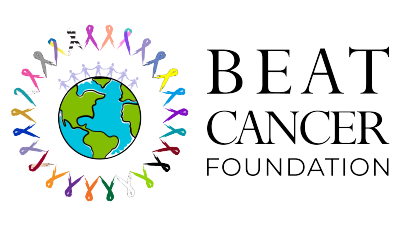
The Critical Role of Early Detection in Cancer

The Critical Role of Early Detection in Cancer
Disclaimer: This content is for educational purposes only and is not intended as medical advice. Please consult a healthcare professional for personalized guidance on diet and health.
The Critical Role of Early Detection in Cancer: A Look at Strategies and Innovations
Cancer continues to be a significant health concern in the United States, with the American Cancer Society projecting 609,360 cancer-related deaths by the end of 2022. As the second leading cause of death in the country, early detection, diagnosis, and treatment of cancer are crucial. Although screening tests exist for some common cancers, the majority of cancers, including rare ones, lack early detection methods. Enhancing early detection can significantly improve treatment outcomes and increase survival rates.
Current Cancer Screening Tests
In the United States, five cancer types have recommended routine screening tests:
● Mammography: Utilized for breast cancer screening, typically for individuals assigned female at birth (AFAB) aged 45 to 54.
● HPV and Pap tests: Employed for cervical cancer screening in AFAB individuals aged 25 and older.
● Colonoscopy: Conducted for colorectal cancer screening in individuals over 45.
● Low-dose CT scans: Performed on high-risk individuals for lung cancer, including former smokers or those with occupational hazard exposure.
● Prostate-specific antigen (PSA) tests: Used for prostate cancer screening in individuals assigned male at birth (AMAB) aged 55 and older.
Despite these screenings, lethal cancers like pancreatic and ovarian cancer often go undetected until symptoms emerge, indicating advanced stages.
Recognizing Cancer Signs and Symptoms
Seven key signs and symptoms of cancer include:
- Changes in bowel or bladder habits.
- Sores that do not heal.
- Unusual bleeding or discharge.
- Thickening or lumps in the breast or elsewhere.
- Indigestion or difficulty swallowing.
- Obvious changes in a wart or mole.
- Persistent cough or hoarseness.
Biopsies: The Gold Standard for Cancer Detection
Biopsies remain the most accurate method for cancer diagnosis, as doctors examine cell samples under a microscope to identify any abnormalities.
Innovations in Early Detection Tests
Research suggests that routine blood tests measuring platelet levels, cells responsible for clotting, may provide early cancer detection. Additionally, multi-cancer early detection (MCED) tests in development aim to screen for multiple cancer types simultaneously.
AI-powered tumor marker tests, such as the Galleri test and OneTest™, offer promising noninvasive methods for detecting over 50 cancer types through a simple blood draw. Both tests can identify cancers without routine screening, including lung, liver, and pancreatic cancers.
In conclusion, while early cancer detection is vital for improving treatment outcomes and survival rates, many cancer types still lack early detection tests. However, innovations in noninvasive methods like MCED tests show great potential in detecting early-stage cancer, including highly lethal varieties such as pancreatic or ovarian cancer.
It is essential to stay informed about the latest advancements in cancer prevention and early detection and collaborate with your healthcare provider to receive appropriate screenings. Emerging technologies like the Galleri test and OneTest™ offer hope for early detection through simple blood tests, contributing to a promising future for cancer prevention and detection.
References:
“Knowing all your treatment options could be life-saving!”
Location
Sheridan, WyomingTogether, we can beat cancer
Thank you for your interest in the Beat Cancer Foundation. We are here to support you every step of the way in your cancer treatment journey. Please fill out the form below, and our team will be in touch with you shortly. Together, we can beat cancer. (307) 291-0991

